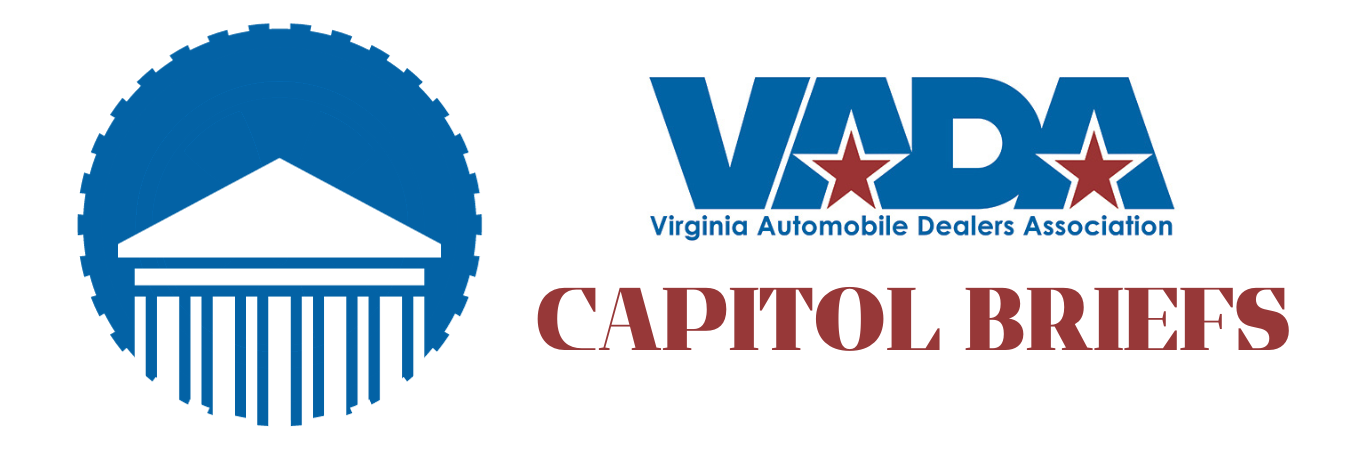
March 15, 2024
How did dealers fare in the 2024 General Assembly?
Article summary:
- The Dealership Buy-Sell legislation is set to enhance fairness in auto dealership transactions by establishing clearer guidelines for objections to sales, particularly focusing on the management experience of potential buyers.
- Consumer protection efforts led to a proposed, but ultimately unsuccessful, amendment to the Virginia Consumer Protection Act requiring all-inclusive advertising pricing, from which auto dealers secured an exemption.
- Environmental initiatives maintained California's zero-emission vehicle (ZEV) standards in Virginia, rejecting bills to unlink from them, and reinforcing the state's commitment to electric vehicle (EV) adoption and sustainability.
- Our legislation enjoyed support from both sides of the aisle, demonstrating a unified approach to ensuring equitable business practices, consumer interests, and environmental goals in the automotive sector.
Our legislative agenda was lighter than in 2023, when we achieved historic franchise system protections.
The cornerstone of our 2024 legislative agenda, the Dealership Buy-Sell legislation, is on the cusp of becoming law. The Governor has until April 8 to sign it.
Why did we need this bill? Auto manufacturers have used current law to subjectively delay or object to dealership sale transactions, despite a process intended to be objective. OEMs would find ways to reset the objection period clock or make unreasonable demands to prolong negotiations, for example.
This legislation is set to provide clearer guidelines for dealership sales transactions, ensuring predictability and fairness in these critical business activities. From receipt of notice from the dealer of a proposed sale or transfer, manufacturers will have 60 days to object. Objection based on an applicant's years of motor dealer management experience is reasonable, but the new law will remove the right to disapprove based on other applicant qualifications.
We thank Del. Terry Austin (R-37th/Buchanan) and Sen. Lamont Bagby (D-14th/Henrico) for carrying the bills.
Another area of our focus was consumer protection. Proposed amendments to the Virginia Consumer Protection Act would have made it mandatory for any seller of consumer goods to include all fees in the price of all advertising. That would prohibit advertising, displaying, or offering any pricing information for goods or services without prominently displaying the total price, which includes all mandatory fees or charges other than taxes imposed.
Clearly, this bill would have affected retail automotive dealers who are permitted to charge processing fees, and additional charges and taxes. Unlike most retailers, Virginia dealers are subject to a robust set of laws and regulations related to advertising, including appropriate disclosure of fees and charges. Those rules take into account standard industry practices.
Early in the session, VADA successfully secured an amendment to the Senate Bill so that it would not impact auto dealers. This exemption was crucial for maintaining fair advertising practices.
The bill ultimately died in a conference committee because the House and Senate could not agree on the language of the bill.
On the environmental front, the California Air Resources Board's zero-emission vehicle (ZEV) standards, which passed in 2021 with our backing, will remain in place for now.
Republican-sponsored bills to unlink Virginia from the standards were rejected by Democratic lawmakers. A workgroup led by Senate Agriculture, Conservation, and Natural Resources Committee chair Sen. Marsden will assess the trajectory of new zero-emission vehicle sales and the industry's capacity to meet state and federal goals.
VADA supports various zero-emission vehicles — battery electric, plug-in hybrid, hybrid, and all the varied powertrains. Most auto manufacturers have made it clear they are committed to phasing out gas-powered engines over the next 15 years. Dealers in states with ZEV standards in place are getting EVs. Auto manufacturers send most EVs where they need to get credit for selling them, and that is in states that have adopted and implemented ZEV standards.
But mass adoption of EVs requires state and federal policies that are technologically achievable, maintain affordability, and complement the efforts of the private sector in advancing the vehicle fleet turnover needed to achieve the targeted environmental benefits within a timeframe that helps, not hurts, new vehicle buyers.
We appreciate Sen. Marsden, along with Commerce and Labor Chairman Sen. Creigh Deeds (D-11th/Charlottesville), in working to convene a working group to ensure Virginia’s policies achieve those goals.
